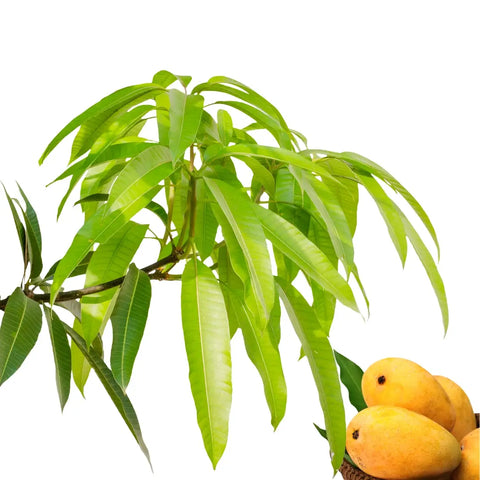5 Secrets of Mango Leaves you need to Know

While mangoes are renowned globally for their delicious taste and nutritional benefits, the leaves of the mango tree often go unnoticed despite their powerful wellness properties. This article delves into the various ways mango leaves have been traditionally used, highlighting why they deserve attention in natural health conversations.
Nutritional and Wellness Profile of Mango Leaves
Mango leaves are rich in vitamins C, B, and A and are packed with beneficial compounds like flavonoids, phenols, and terpenoids. These compounds contribute to the leaves' antioxidant, soothing, and cleansing properties.
Wellness Benefits Explored
-
Supports Healthy Blood Sugar Levels: Mango leaves have been used in traditional ways for their potential to help support healthy blood sugar balance. The tender leaves contain natural compounds that may be beneficial for those seeking to maintain overall wellness.
-
Promotes Heart Health and Circulation: Mango leaves are believed to support cardiovascular health by promoting normal circulation. Their nutrient content, including pectin, vitamin C, and fiber, contributes to overall heart wellness and supports balanced cholesterol levels.
-
Encourages Relaxation: For individuals experiencing occasional restlessness, mango leaves have been traditionally used as a home aid. Adding mango leaves to a warm bath or using them in a steam inhalation practice may help promote a sense of calm and relaxation.
-
Supports Respiratory Wellness: Mango leaves have been commonly used in traditional ways to support overall respiratory health. Mango leaf tea or an infusion can provide comforting and calming benefits, making it a popular choice for throat comfort.
-
Natural Comfort for Joints: Thanks to their natural soothing properties, mango leaves have been used to support joint comfort. They are valued in wellness practices for helping individuals maintain mobility and ease.
Traditional Uses and Preparations
Across different cultures, mango leaves are used in various ways. They are often dried and powdered or infused into teas and tonics to support overall health. In some regions, mango leaves are even used in cooking, adding flavor and beneficial nutrients to meals.
Current Research and Future Prospects
Ongoing studies continue to explore the wide-ranging benefits of mango leaves, including their potential to support overall wellness. As research evolves, the leaves may hold even more possibilities for contributing to a natural, balanced lifestyle.
Conclusion
Mango leaves remind us that some of the best natural solutions for health can be found right in our gardens. As research continues, incorporating mango leaves into wellness routines may become more common, offering an affordable, natural way to support daily health.










